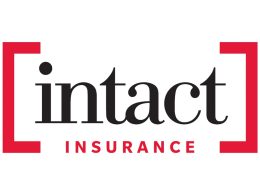CONSUELO MACK: Lessons learned from the financial crisis and its aftermath?
HERSH COHEN: Oh my gosh. I'm going to tell you, the main lesson I've learned is that the regulators have no clue. I'm sorry. I could get up on a soapbox about this. As someone who sits there watching that market every day, and I see this high frequency trading, it is so destructive. And I don't care what the traders say. Liquidity? Liquidity for what? Other high frequency traders? Who says people have to turn their portfolios over 200% a year? People were put in jail for market-timing mutual funds, but hundreds of times a day, you get people pressing buttons and trading hundreds of stocks. It ruins the confidence. Don't ask me for the numbers. You probably have them. But numbers of days, plus or minus, you know, 2% in the last couple of years, is more than the entire history of the stock. That's not good. That's not good.
By the way, the other thing? How can you allow the thing that brought this country to its knees, the naked ownership of credit default swaps? And you're just reading about it in the paper now, with Goldman Sachs and AIG. Would you sell your homeowners insurance to somebody down the block or around the corner? What's their incentive? To burn your house down. So you would get these stories that GE was going bankrupt. Why? Because the credit default swaps were going up. And I don't get that. Credit default swaps, fine. Just, let them be owned by the people who own the underlying securities. That's fine. So, I don't believe in banning things, but I mean, just modify things a little bit to make it fair, that you don't drive away the individuals.
CONSUELO MACK: Which is what you think is happening.
HERSH COHEN: Oh, my goodness.
CONSUELO MACK: Right. You know, you are a self-confessed worrier. And you've just explained some of the things that you're worried about. What are you most worried about, when you look at the economic or the market right now, environment?
HERSH COHEN: Where the recovery is going to come from. I don't see the industries that are going to come up to create the long-term jobs. I don't see them now. I would love to see, for example, if you're going to spend on infrastructure, how about high-speed rails? How about really attacking the energy problem? California- I go to visit my son in Los Angeles, and the roads are clogged. There's no way to get from here to there without a car. What about, you know, putting money into rapid transit, where industries could actually have the confidence that they could invest in this, that 10 years from now, there would still be an industry. High-speed rails. I mean, I go from New York to Baltimore or Washington on the Metro line here. It's great. It's great. Why not have more? How can China do it and we can't do it? And it's not even being talked. You want to attack the energy problem? Cut down on the number of cars on the road by giving people a good option.
So, what do I worry about? People don't have the wherewithal, and don't have the will to spend. We have this big consumer-led economy, based on buildup of debt, mortgages and credit card debt, and it's starting to roll over. It's going to take a long time. So, I just think it's going to be a while before we have the consumer in a position to spend again, and--
CONSUELO MACK: So, that means sub-par growth.
HERSH COHEN: For as far as the eye can see.
CONSUELO MACK: And, Hersh, One Investment. What's the one investment that you think that everyone should have some of in a long-term diversified portfolio?
HERSH COHEN: Well, I love this package of dividend payers, and I would not say just buy one. I mean, if you ask me, do I love Johnson & Johnson? Yes. Do I love 3M? Yes. But, a package.
CONSUELO MACK: And advice to individual investors. What would you tell us, as individual investors?
HERSH COHEN: This is one of the Cohen rules. What's easy to do is almost always the wrong thing to do, and what's hard to do is usually the right thing to do. The hardest thing for people to do now is to buy a package of these great companies.
CONSUELO MACK: Hersh Cohen, thank you so much for joining us.
HERSH COHEN: Thanks for having me.
CONSUELO MACK: At the conclusion of every WealthTrack, we leave you with one action to take to build and protect your wealth over the long term. This week’s Action Point is: take a look at Hersh Cohen’s “blue chip income” list- big brand name companies with great balance sheets and attractive and growing dividends get little or no respect in the market these days. From a contrarian point of view, that is reason enough alone to consider them. Among the names on Hersh’s list are companies with yields of 3% or better including Abbott Labs, AT&T, Johnson & Johnson, Kimberly Clark and Proctor & Gamble.
[Here is the complete list of Hersh’s blue chip income stocks from wealthtrack.com.]And with those ideas in mind, we will wrap up this edition of WealthTrack. Join us next week when we revisit Great Investor, FPA Crescent Fund’s Steven Romick, a Morningstar finalist for Fund Manager of the Decade. Thank you so much for visiting with us. And make the week ahead a profitable and a productive one.
Copyright (c) Wealthtrack











